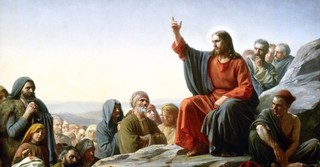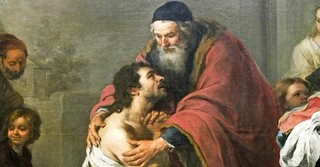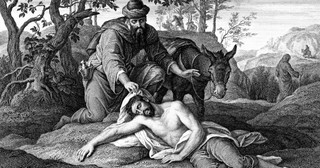The Road to Damascus: Paul's Conversion
Share

The Conversion of Paul - Bible Story
The following Bible text is the account of Paul's conversion along the road to Damascus, in which the Lord appeared to him saying, "I am Jesus, whom you are persecuting. 6 But rise and enter the city, and you will be told what you are to do." In this scripture, the name Saul is used for the Apostle Paul as they were interchangeable, "...Saul, who was also called Paul..." (Acts 13:9)
But Saul, still breathing threats and murder against the disciples of the Lord, went to the high priest and asked him for letters to the synagogues at Damascus, so that if he found any belonging to the Way, men or women, he might bring them bound to Jerusalem. Now as he went on his way, he approached Damascus, and suddenly a light from heaven flashed around him. And falling to the ground he heard a voice saying to him, "Saul, Saul, why are you persecuting me?" And he said, "Who are you, Lord?" And he said, "I am Jesus, whom you are persecuting. But rise and enter the city, and you will be told what you are to do." The men who were traveling with him stood speechless, hearing the voice but seeing no one. Saul rose from the ground, and although his eyes were opened, he saw nothing. So they led him by the hand and brought him into Damascus. And for three days he was without sight, and neither ate nor drank.
Now there was a disciple at Damascus named Ananias. The Lord said to him in a vision, "Ananias." And he said, "Here I am, Lord." And the Lord said to him, "Rise and go to the street called Straight, and at the house of Judas look for a man of Tarsus named Saul, for behold, he is praying, and he has seen in a vision a man named Ananias come in and lay his hands on him so that he might regain his sight." But Ananias answered, "Lord, I have heard from many about this man, how much evil he has done to your saints at Jerusalem. And here he has authority from the chief priests to bind all who call on your name." But the Lord said to him, "Go, for he is a chosen instrument of mine to carry my name before the Gentiles and kings and the children of Israel. For I will show him how much he must suffer for the sake of my name."
So Ananias departed and entered the house. And laying his hands on him he said, "Brother Saul, the Lord Jesus who appeared to you on the road by which you came has sent me so that you may regain your sight and be filled with the Holy Spirit." And immediately something like scales fell from his eyes, and he regained his sight. Then he rose and was baptized; and taking food, he was strengthened. For some days he was with the disciples at Damascus. And immediately he proclaimed Jesus in the synagogues, saying, "He is the Son of God." And all who heard him were amazed and said, "Is not this the man who made havoc in Jerusalem of those who called upon this name? And has he not come here for this purpose, to bring them bound before the chief priests?" But Saul increased all the more in strength, and confounded the Jews who lived in Damascus by proving that Jesus was the Christ. (Acts 9:1-22)
Meaning of Paul's Road to Damascus Story
Paul persecuted Christians under the legal structure of Judaism; as such, he was charged to arrest Jewish Christians, but had no authority over Gentile Christians.
Paul's blindness illustrates Christ's teachings on spiritual blindness (John 9:39). As long as Paul saw things from his own perspective, he was spiritually blind. Only by having his earthly vision taken away does Paul become capable of truly seeing Christ in glory and truth. This action also drives Paul to submit to the Church for baptism.
That Paul was a chosen vessel of God does not mean that he had no free will in the matter. Rather, it indicates that God had selected Paul, knowing that he would freely accept and be capable of doing the work set before him.
Commentary on Acts 9
So ill informed was Saul, that he thought he ought to do all he could against the name of Christ, and that he did God service thereby; he seemed to breathe in this as in his element. Let us not despair of renewing grace for the conversion of the greatest sinners, nor let such despair of the pardoning mercy of God for the greatest sin. It is a signal token of Divine favor, if God, by the inward working of his grace, or the outward events of his providence, stops us from prosecuting or executing sinful purposes. Saul saw that Just One, ch. (Acts 22:14 , Acts 26:13). How near to us is the unseen world!
It is but for God to draw aside the veil, and objects are presented to the view, compared with which, whatever is most admired on earth is mean and contemptible. Saul submitted without reserve, desirous to know what the Lord Jesus would have him to do. Christ's discoveries of himself to poor souls are humbling; they lay them very low, in mean thoughts of themselves. For three days Saul took no food, and it pleased God to leave him for that time without relief. His sins were now set in order before him; he was in the dark concerning his own spiritual state and wounded in spirit for sin. When a sinner is brought to a proper sense of his own state and conduct, he will cast himself wholly on the mercy of the Saviour, asking what he would have him to do. God will direct the humbled sinner, and though he does not often bring transgressors to joy and peace in believing, without sorrows and distress of conscience, under which the soul is deeply engaged as to eternal things, yet happy are those who sow in tears, for they shall reap in joy. (Matthew Henry Commentary)
Read the full scripture account of Paul's conversion on the Road to Damascus below and find articles to learn more about this Bible story!
Photo credit: Wikimedia Commons/Public Domain/Valentin de Boulogne





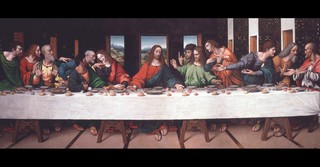

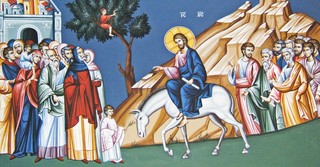

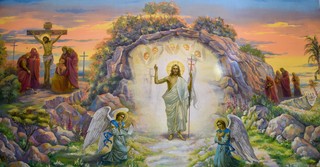

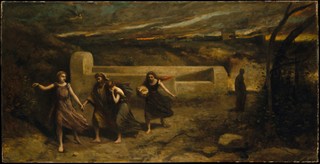
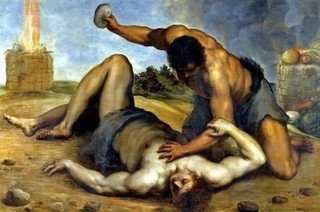
.800w.tn.jpg)
